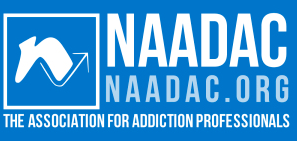The behavioral health workforce consists of myriad occupations including “paraprofessional” behavioral health workers – non-clinicians who either work to support or augment behavioral health treatment, typically without a college degree. “Paraprofessional” can be a misnomer; although some paraprofessionals only work part-time or as volunteers, others pursue their vocation as a full-time career. Examples of paraprofessional behavioral health workers include, but are not limited to: peer recovery support specialists, community health workers (CHWs)/promotores de salud, substance use disorder (SUD) workers, and social services aides. Some of these roles, such as peers, community health workers, and promotores, leverage the worker’s unique identity as either a person recovering from a behavioral health condition and/or coming from a specific community, to help bridge connections with similar patients and/or community members.
Paraprofessionals are unique in that they often require minimal formal education and training compared to clinical behavioral health providers, meaning they are an easier workforce to build quickly. Studies have shown that including paraprofessionals such as peer providers and CHWs on care teams improves patient outcomes, including engagement with treatment, though the question remains if they save the health system money. Recognizing this clinical efficacy, Medicaid programs have begun authorizing payment for some paraprofessionals in various states despite the requirements for paraprofessionals varying widely across the country.
To better understand this emerging sector of the behavioral health workforce, both a review of state requirements for these paraprofessional categories and an environmental scan of influential accreditors and organizations in the field must be conducted. This study will include three phases of analysis:
- A study of state requirements, as identified in statutes and administrative codes, for key paraprofessional categories (peers, CHWs, and certified SUD counselors)
- An environmental scan of training programs for these same paraprofessional categories
- Qualitative interviews with Behavioral Health Workforce Education and Training (BHWET) grantees offering certification courses from a mix of state-specific and nationally-accredited curricula
Findings
In order to describe the variation in paraprofessional accreditation standards by state and to analyze whether states follow national models, their own models, or a mixture of both, a total of 113 SUD counselor credentials, 65 PRS credentials, and 43 CHW credentials were identified. Across all of the SUD counselor, PRS, and CHW credentials, most followed a state-based model. National credentialing models do exist for some, leading to inconsistencies in qualifications and scopes of practice among these professions. Consequently, this discrepancy makes it difficult to determine whether the behavioral health workforce is working at full capacity tomeet mental health needs.
To ensure a more competent and uniform paraprofessional workforce, future policies should work toward standardizing a core set of evidence-based paraprofessional credential requirements and scopes of practice. Additionally, a national organization for CHWs should be established to help implement a nationally recognized standard of care, promote reciprocity of credentials across states, and support the CHW workforce. With no national model for CHWs to follow, a lack of national standards for CHWs may exist due to the status of community health work as a newer profession. This means greater variability between individual credentials based on the community in which the CHW serves.
Finally, the establishment of centralized state-level training and technical assistance centers for paraprofessionals could help eliminate ambiguity in credentialing requirements and support these providers as work is being made toward standardizing their credential requirements and scopes of practice.



